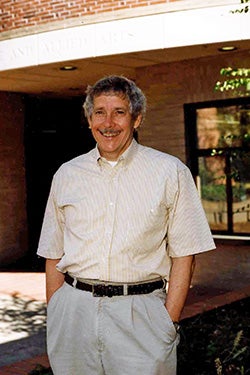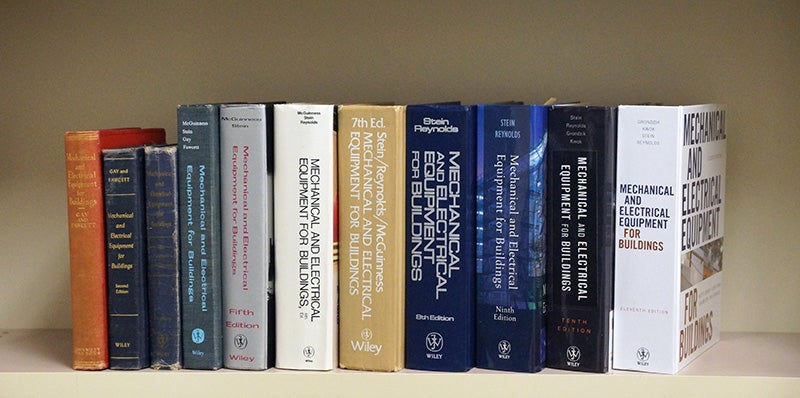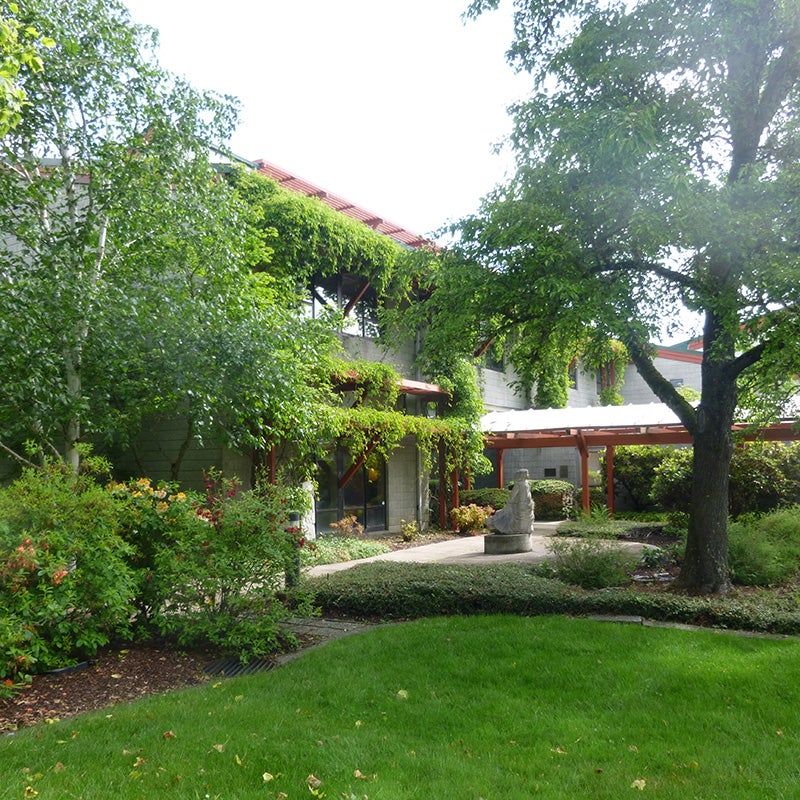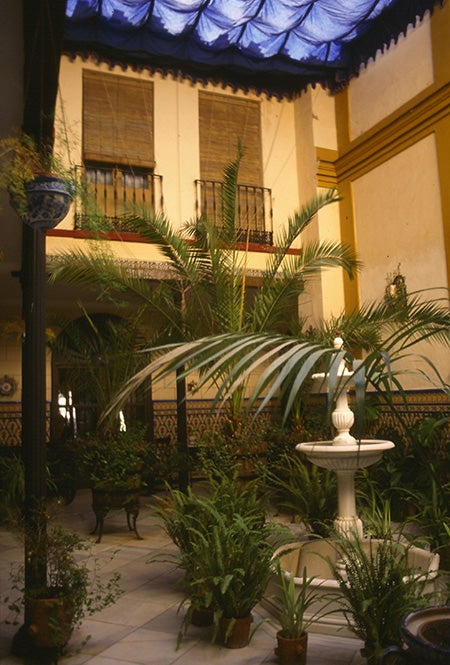Tickets are now on sale for the inaugural John Reynolds Sustainability Symposium at the UO campus in Eugene on Sunday, May 17. A pre-symposium dinner gathering will be held Saturday, May 16, with presenters, sponsors, faculty members and special guests from 6-9 p.m. Tickets for the symposium and dinner are available online or by phone at 541-346-4363.

Above: John Reynolds
The John Reynolds Sustainability Symposium will bring internationally renowned practitioners, researchers, and thought-leaders to campus for lectures, panel discussions, networking, and sharing about topics on the leading edge of sustainable design, policy, teaching, and research.
This symposium honors Professor Emeritus John Reynolds’ decades of contributions to sustainable design and energy policy. Were it not for Reynolds’ research and teaching, and the colleagues he attracted to the university, A&AA would not be known as a leader in sustainable design education nor would our alumni be making the level of impact they are around the globe.
For nearly five decades Reynolds, FAIA, has been interested in how people use energy in buildings and how buildings shape that energy usage. He has taught both architecture design and environmental control systems at UO, is coauthor of Mechanical and Electrical Equipment for Buildings, and is currently president of the board of the Energy Trust of Oregon. He was named Distinguished Professor by the Association of Collegiate Schools of Architecture in 1998, the first Oregon faculty member to be so honored. Learn how John Reynolds shaped Eugene’s energy legacy.
Presenters at the symposium and their topics:
• Jean Carroon, FAIA, MArch ’87, “Defining Sustainability: The Power of Historic Preservation.” Carroon is the author of Sustainable Preservation, Greening Existing Buildings (John Wiley & Sons, 2010). She leads the Goody Clancy preservation practice in Boston. She has applied her expertise to more than a dozen National Historic Landmarks, including Boston’s Trinity Church. Carroon is a member of the National Trust for Historic Preservation Sustainability Coalition and the Advisory Group of the AIA Historic Resources Committee.
• Margie Harris, “Designing the possible: What architects can do today to guarantee affordable, clean energy tomorrow.” Harris is the executive director of the Energy Trust of Oregon (ETO) and serves on the Northwest Energy Efficiency Alliance board. In 2011 Harris received the distinguished Portland Business Journal Women of Influence: Executive of the Year award for a nonprofit organization. She helped craft Oregon’s first energy conservation legislation and programs while at the Oregon Department of Energy in the 1970s. Subsequently, she served as marketing and outreach director promoting renewable energy at one of four regional solar energy centers established by President Jimmy Carter.
• Denis Hayes, “Living Inside a Living Building.” Hayes is president of the Bullitt Foundation, leads an effort to mold the Pacific Northwest into a global model of sustainability. He is an author of numerous books and articles and is known internationally for having been the national coordinator of the first Earth Day. Time Magazine selected Hayes as one of its "Heroes of the Planet." He has been profiled as "Newsmaker of the Week" by ABC News and as "Today’s Person in the News" by The New York Times.
• Jason F. McLennan, “Living Buildings and a Living Future.” McLennan is CEO of the International Living Future Institute, a leading nongovernmental organization that focuses on the transformation to a world that is socially just, culturally rich, and ecologically restorative. McLennan is considered one of the most influential individuals in the green building movement. A recipient of the prestigious Buckminster Fuller Prize, he is a much sought-after presenter and consultant on a wide variety of green building and sustainability topics around the world.
• Edward Mazria, “Road to Zero.” Mazria is an internationally recognized architect, author, researcher, and educator, is the founder of Architecture 2030, a nonpartisan, nonprofit research organization developing planning, policy, and design solutions for low-carbon, resilient built environments worldwide. Over the past decade, his seminal research into building sector energy use and carbon emissions has reshaped our understanding of climate change. Mazria has taught at the University of Oregon.
• Mick Pearce, “A Review of Melbourne City Council House 2.” Pearce is described as one of the most ingenious, critical architects practicing today, at the vanguard of designing low maintenance buildings with low capital and running costs. He focuses on deep architectural expression between the natural, social, and economic environments. He was born in Zimbabwe and studied at the Architectural Association in London. In 2003, Pearce was honored for his innovations in the field of ecological and sustainable design with a Prince Claus Award from the Netherlands.
• John Reynolds, “Courtyards: Aesthetic, Social, and Thermal Delight.” Reynolds received the American Solar Energy Society’s Passive Pioneer Award in 1997, was elected a Fellow in 2000, then served as chair of the ASES board. The Cascadia Region of the US Green Building Council honored Reynolds as an Honorary Fellow in 2009. In 1988 he received a teaching Fulbright to Argentina, where he taught “Arquitectura Bioclimatica” in Spanish. His investigations into courtyard buildings led to a grant from the Graham Foundation for Advanced Studies in the Fine Arts in 1995-96, resulting in his book "Courtyards: Aesthetic, Social, and Thermal Delight" (Wiley, 2002).

Above: Volumes one through eleven of Mechanical and Electrical Equipment for Buildings pictured above. Reynolds coauthored volumes six through eleven and transformed the MEEB textbook into an important reference for sustainable design. Photo by Omar Hason.
Panelists at the symposium will include:
• Oregon Taught Teachers—a panel featuring three University of Oregon graduates with careers as professors of architecture.
• Virginia Cartwright, MArch ’81, is the moderator of the panel discussion. She is an associate professor of architecture and director of the UO Baker Lighting Lab. She explores light, form, and space through her research, architectural practice, and teaching. She was a Fulbright scholar in Finland in 2010.
• Alfredo Fernandez Gonzalez, MArch ’99, is a professor of architecture and the director of the Natural Energies Advanced Technologies (NEAT) Laboratory at the University of Nevada, Las Vegas. Winner of several teaching awards, he researches energy efficiency and green design; passive and low-energy heating and cooling systems; and water harvesting, treatment, and reuse systems.
• David P.Y. Lung, BArch ’74, MArch ’78 and MA ‘78, is the Kotewell Professor in the Built Environment at Hong Kong University. He is internationally recognized for his work in preservation of World Heritage Sites, including the Historic City of Macao, Kaiping Diaolou and Villages, and the Historic Cities in the Straits of Malacca. David won the University of Oregon’s Ellis F. Lawrence Medal in 2013.
• Susan Ubbelohde, MArch ’81, is professor of architecture and associate dean of faculty affairs at the University of California, Berkeley. Ubbelohde and her partner. George Loisos, BArch ’81, lead Loisos + Ubbelohde, an office of unconventional practice, bringing research methods and physical and computer modeling to a wide range of architectural design solutions.
Proceeds from the symposium will help support the John S. Reynolds Architecture Symposium Fund established at the University of Oregon Foundation. The fund will support symposia that focus on issues, problems, advances, technologies, practices, and other topics that pertain to sustainability in architecture teaching, research, practice, policy, and community activity.
The symposium is presented by the School of Architecture and Allied Arts with the support of generous sponsors including International Living Future Institute, the Energy Trust of Oregon, Better Bricks, Eugene Water & Electric Board (EWEB), and the Van Evera and Janet M. Bailey Fund of the Oregon Community Foundation.
If unable to attend the symposium, please consider making a donation to the the John S. Reynolds Architecture Symposium Endowment Fund.

Above: Eugene People’s Utility District headquarters in Eugene, Oregon, one of six public utility districts in Oregon, was designed by John Reynolds and utilizes passive heating and cooling approaches. Photo courtesy: John Reynolds.

Above: An image from John Reynolds’ book Courtyards: Aesthetic, Social, and Thermal Delight.
